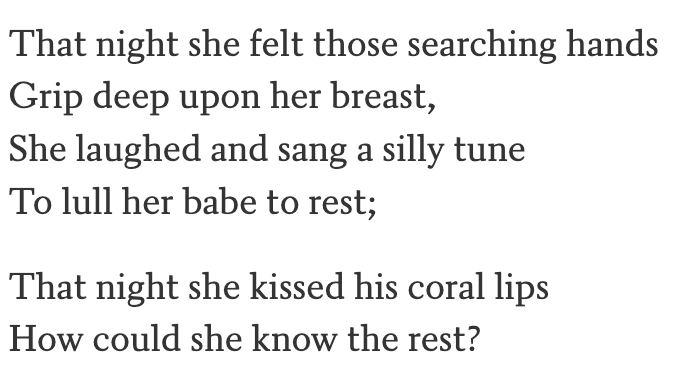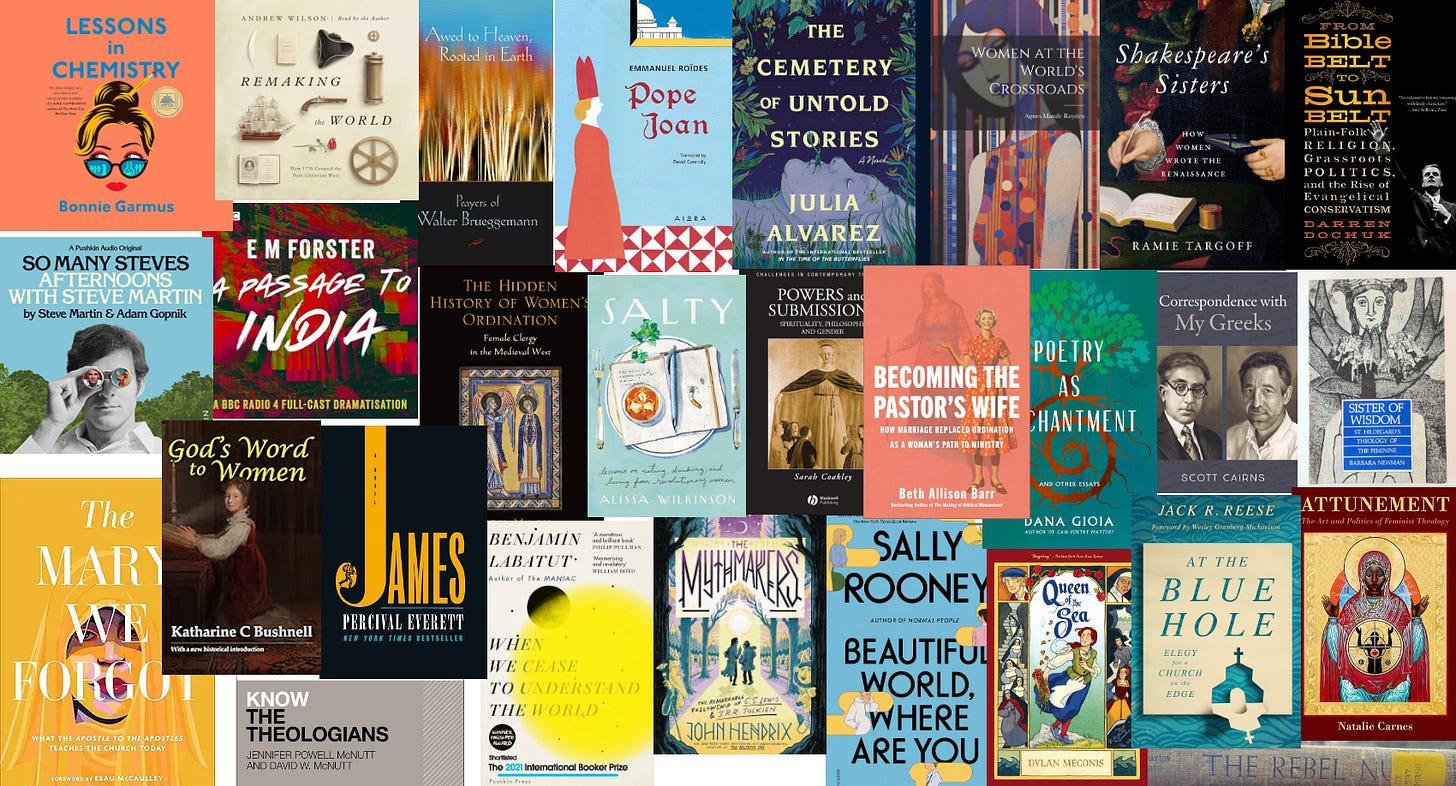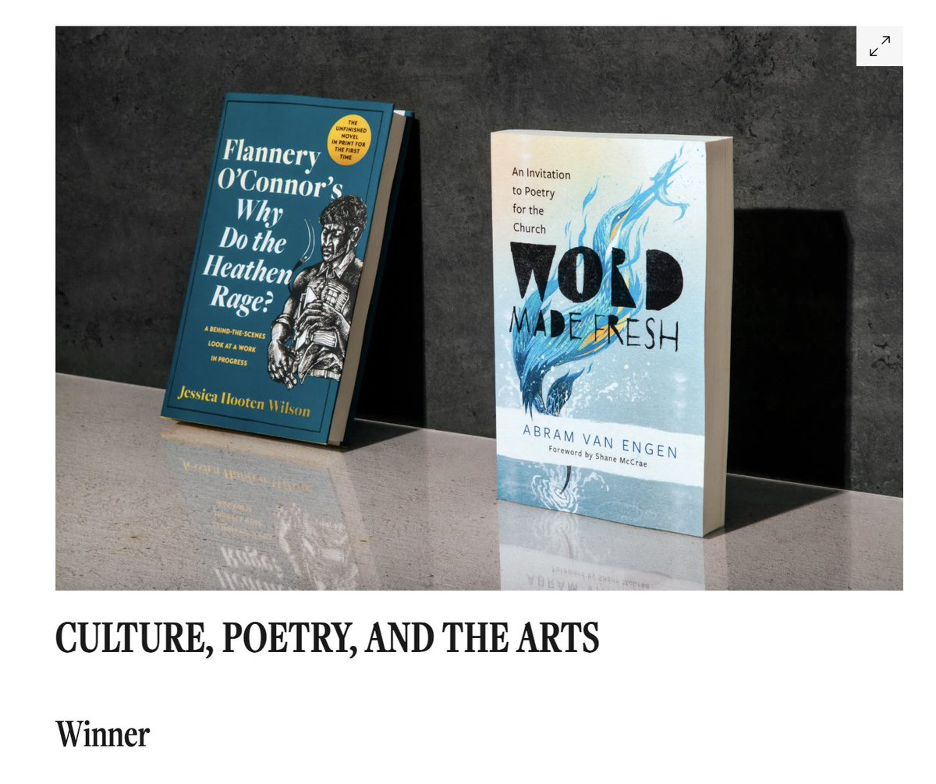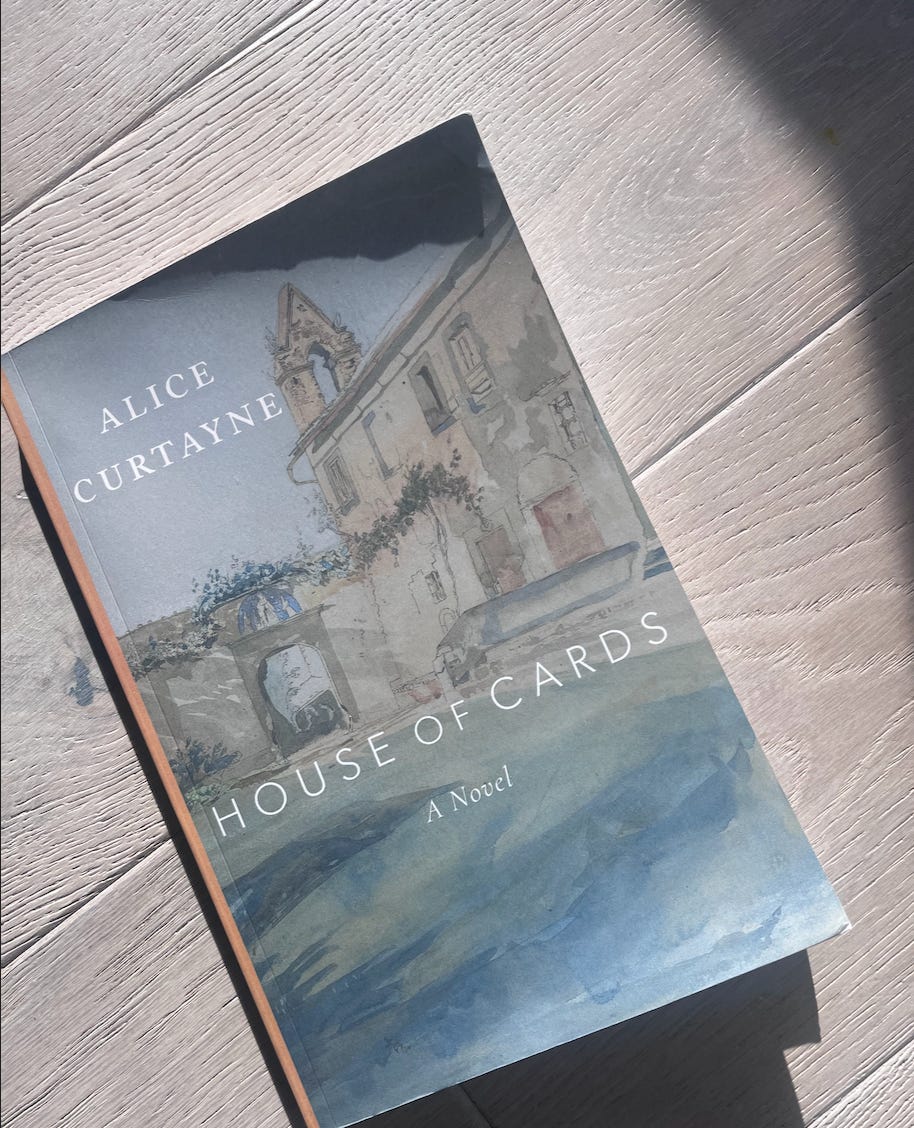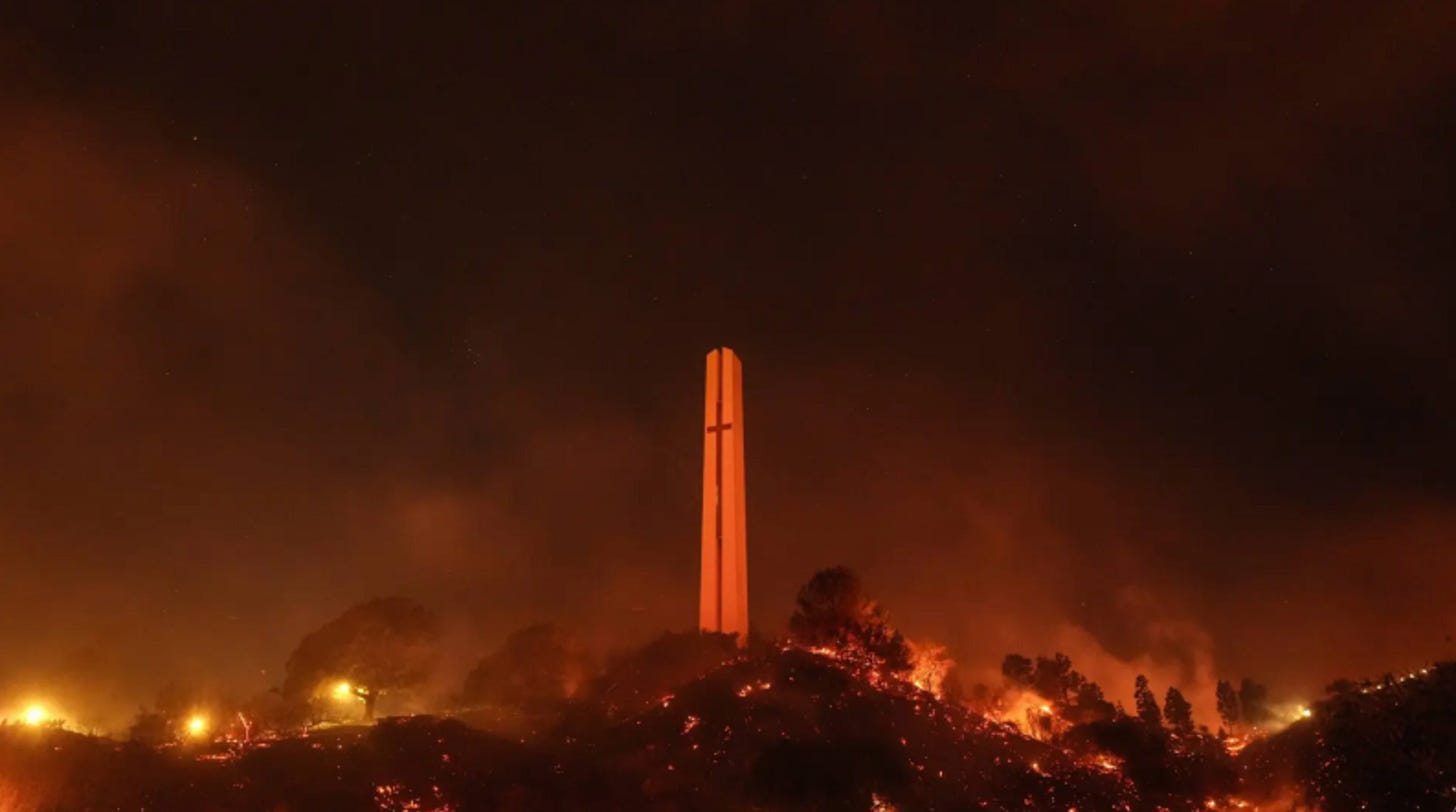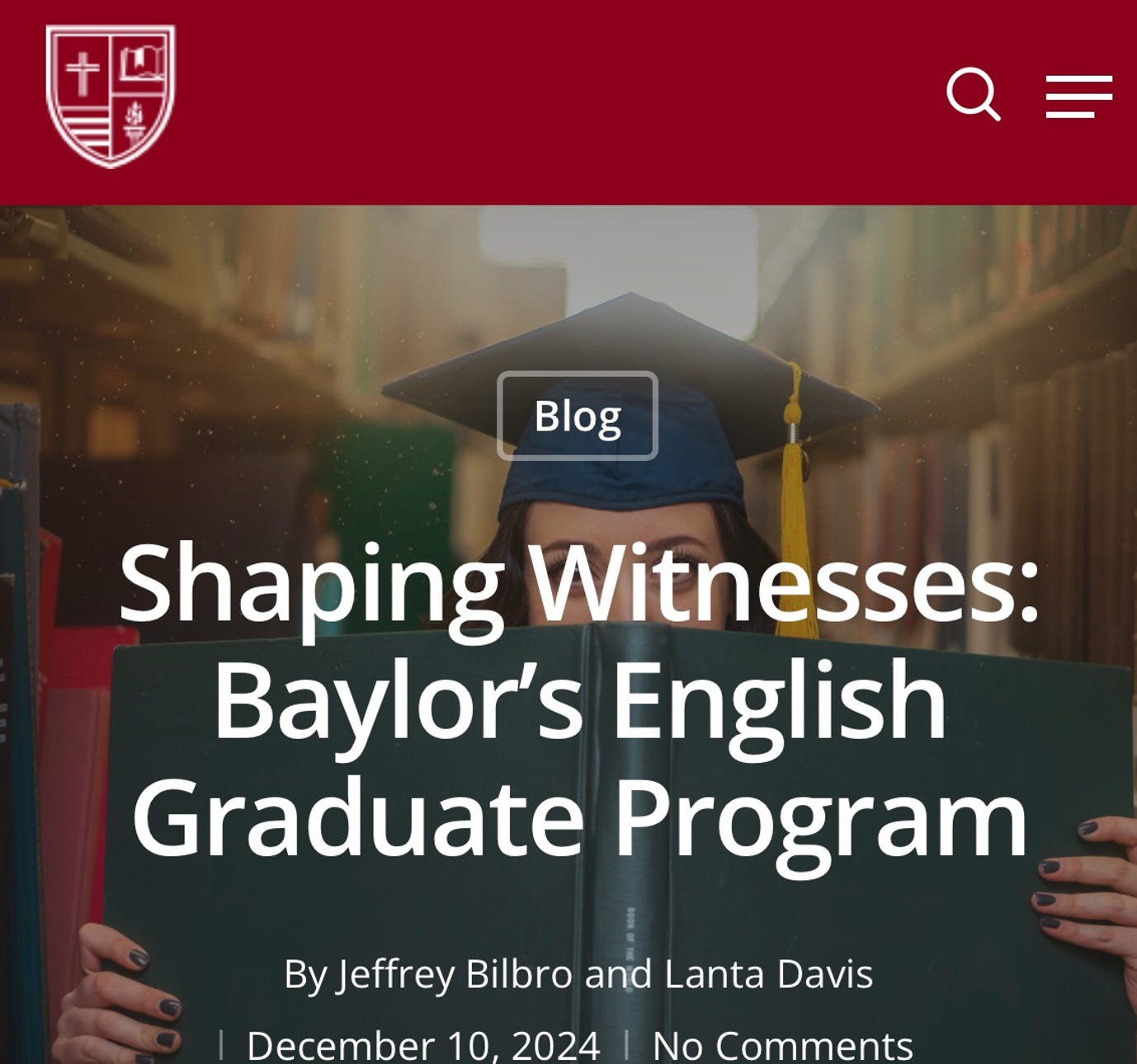Reading up to 2024
Reviewing Books of the Years
"Great is the power of memory, a fearful thing, O my God, a deep and boundless manifoldness; and this thing is the mind, and this am I myself"" - Augustine, Confessions
I don’t remember everything I read. But I do believe memory is an obligation, as St. Augustine encourages us, for the imagination is composed of the things we remember—books, art, liturgy, life experiences. With that in mind, I want to remember what I read this year—what were some of my favorite books of 2024—as well as what books did people love in 1924? or, 524!?
1924
I’m not alone in wondering what people were reading a hundred years ago; someone shared this list with me. After scouring the internet for 1924 books, I decided to read E.M. Forster’s A Passage to India (though I chose the audiobook). Magnificent novel! Other classics included the posthumously published Billy Budd by Herman Melville (which I’ve never enjoyed), Thomas Mann’s The Magic Mountain (which I’ve never been tempted to read), and We by Yevgeny Zamyatin (which has been sitting on my shelf of Russian books that I’ve yet to read, so I will add this to my TBR in 2025).
Works off the beaten path include G.K. Chesterton’s biography of St. Francis of Assisi. Also worthwhile is his biography of St. Thomas Aquinas, often published together. And Countee Cullen’s “Mary, Mother of Christ,” which sounds like it may have inspired the song “Mary, did you know?”
As I was perusing books a century old, Christianity Today published a review by my friend SJ Murray of Boethius’s 1500-year-old book Consolation of Philosophy. By far, the best book of 524. I’d forgotten that Jenn Frey and I had discussed it tangentially when we talked about A Confederacy of Dunces a few years ago on her Sacred & Profane Love podcast.
It’s hard to imagine which of the books that we are reading in 2024 will still be read in 100 years, let alone in 1500 years!
2024
Like John Wilson, I cannot choose the “best books” of the year. Nor can I even limit myself to books published in 2024. I read promiscuously from low brow to high brow, from graphic novels to Audibles to classics, from history to memoir to fiction. These are merely some of my favorite books that I read in 2024.
A recurrent theme with much of my reading this year has been books in conversation with history: Shakespeare’s Sisters, James, Pope Joan, The Mythmakers, When We Cease to Understand the World, From Bible Belt to Sun Belt, Salty, Remaking the World. These books have introduced me to figures with whom I was often unfamiliar, such as Shakespeare’s contemporary Aemilia Lanyer who was a woman poet largely now forgotten. Or Pope Joan (I found this novel at a used bookstore on Santorini), a 9th c. myth about a woman disguised as a man who became Pope. Through Labatut’s eyes, I became familiar with scientists of the 20th c. whose revolutionary discoveries have altered our way of viewing reality, and not necessarily for the better. Because of Everett’s novel, I will never look at black characters in white authors’ fiction the same way again. My reading this year was such an adventure in humility.
I’m fascinated with women in Christian history, so I read many biographies, memoirs, and biblical study on figures such as Mary Magdalene, Maya Angelou, and Mary Sidney. A few books provided historical insights that altered my perspective on the church:
The Hidden History of Women’s Ordination: Did you know women were ordained in the church until the 13th c.? Evidence for ordination was ignored because of confirmation bias. But this Oxford UP book documents it all.
Becoming the Pastor’s Wife: If you loved The Making of Biblical Womanhood as much as I did, you’ll preorder this book! There is no biblical foundation for the vocation of “pastor’s wife.” Peter’s wife stays home and doesn’t accompany him in his ministry. Aquila may have been a pastor’s husband. SBC didn’t forbid ordaining women until 1983! When priests became celibate in the 13th c., the bishop of Winchester licensed brothels. I could go on and on, but it would be too many spoiler alerts—read the book! (Also check out Barr’s newsletter.)
The Mary We Forgot: Church interpreters for too long have been conflating the woman in Luke 7 with Mary of Bethany with Mary Magdalene, which reduces further the few women in Scripture who are given prominence. Also, Magdalene was likely not a prostitute. Male interpreters seem to put on sexual lenses when seeing the sinner, but the Bible just tells us she had seven demons. There is no sexual sin described. You have to read this whole book! It’s such a pilgrimage.
Finally, Attunement: For theological aesthetics, Natalie Carnes is as good as it gets. She reinterprets Mariology in the context of Mark Doox’s Our Lady of Ferguson icon as well as through the life of Maria Skobtsova. Acknowledging feminist critiques, Carnes attunes us to ways of reimagining Mary that is not ethereal nor oppressive but life-giving.
While I usually read more poetry during the year, I read so much ancient verse this year (Odyssey, Sappho, Iphigenia among Taurians, Seneca) that I didn’t read a lot of newer books. I did want to grab James Matthew Wilson’s latest, Saint Thomas and the Forbidden Birds, but I’ll have to wait until 2025. Can Bruggemann’s prayers be considered poems? If so, I’d recommend his collection Awed to Heaven, Rooted in Earth to be kept by your bedside for regular reading.
If you want other lists of Best Books of 2024, check out Christianity Today’s awards, which gave second place to my Flannery O’Connor’s Why do the Heathen Rage?
What I recently read
Published in 1939, written by a Catholic female novelist Alice Curtayne, House of Cards should not have surprised me, but I was too expectant of a happy ending. The protagonist Anne Farrelly leaves her home in Ireland to “make her way in the world,” as the story goes. She is intelligent, resourceful, perseverant, and admirable in her suffering, fortitude, and resolve to forego sentimental romances or sexual liaisons. I thought she’d either become a nun like Philippa Talbot from Rumer Godden’s 1969 In this House of Brede or a wife and mother like Hannah Coulter from Wendell Berry’s 2005 novel. She chooses neither the religious life nor the married one, and so, from the author’s vantage point, she must end unhappily as a working woman: “A truth which life had cruelly proved is that for such as she was, a woman not powerfully drawn to religion, nor preoccupied by ill-health, marriage is the only real haven. In debarring herself that, Anne had denied herself nothing less than life.”
The false either-or is too much. Marriage or religious life are not a Christian’s only options. Our very lives witness Him. If Augustine is right that we should “Love God and do what we will,” then no one needs to feel life has been wasted without becoming a minister or a spouse. Poor Anne ends on the final page to be unsatisfied by books, art, music, “varied culture, travel, wide experience of people and places, friendships, freedom…” The litany goes on, emphasizing the “empty void in her heart.” It is true that the heart is restless until it rests in God (Augustine is the man of the hour apparently), but Anne prays and worships and seems to rest in Him. The author implies her heart is restless without marriage. Such a conclusion sounds pagan, not biblical.
Recent Links
We survived our first California fire. To read more about God’s providence, the heroics of the First Responders, and the phenomenal response of Pepperdine University, check out this blog by Dean of Law Paul Caron (with whom I ended up evacuating to the same hotel during the frightful week of flight).
I’m convinced that Baylor University’s Religion and Literature PhD program was one of a kind in the way that it prepared us graduates for becoming public intellectuals serving the church. I’ve been wanting to express my gratitude (and hope to call other universities to action to implement such a program since none now exists), but I have not had the bandwidth. Thankfully my colleagues Dr. Jeff Bilbro and Dr. Lanta Davis wrote such a piece and drew from my recent talk “Education of Witness” at Whitworth’s Conference. Read here about how to shape future witnesses.
Flannery’s Centennial 2025
If you have not read Flannery O’Connor or if you want to celebrate her 100th birthday, grab a copy of my book Flannery O’Connor’s Why do the Heathen Rage? or my Audible Original Flannery O’Connor and the Scandal of Faith, both published in 2024 in time for her centennial. To support my work on O’Connor, please REVIEW and RATE these books on Amazon, Goodreads, etc. I’ll be speaking at her home Andalusia on February 13, 2025 and appearing on lots of podcasts (here I am on The Artistic Vision recently) talking about O’Connor this next year. I look forward to celebrating this anniversary of one of America’s greatest Christian fiction writers.


